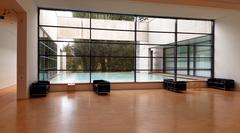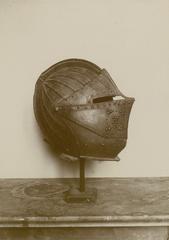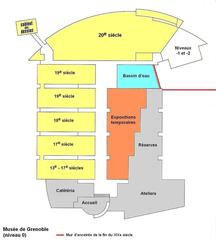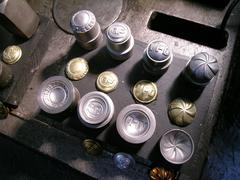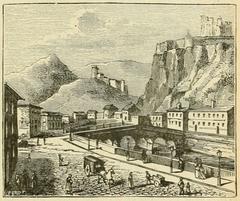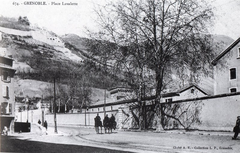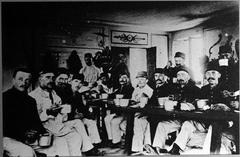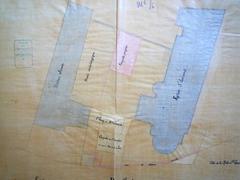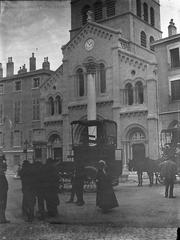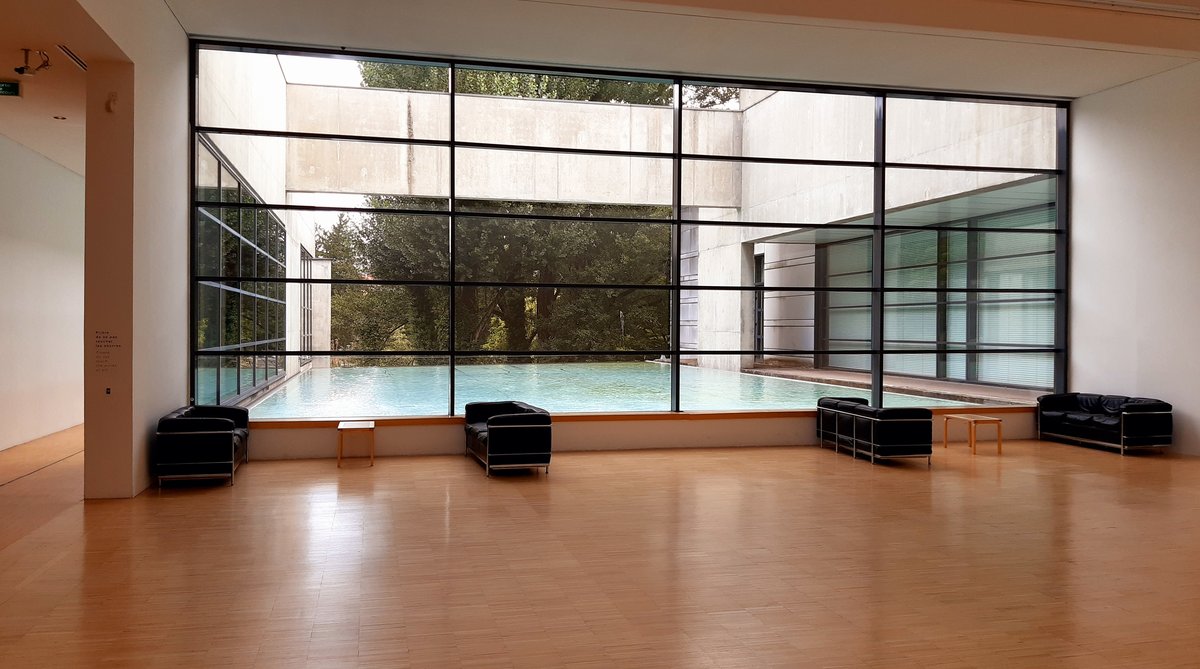
Museum of Grenoble: Visiting Hours, Tickets, and Historical Sites Guide
Date: 14/06/2025
Introduction
Nestled in the heart of Grenoble, France, the Museum of Grenoble (Musée de Grenoble) stands as a beacon of artistic heritage and cultural innovation. Founded in 1798, it is one of France’s oldest municipal museums, renowned for its pioneering approach to public access to art and its extraordinary collection spanning antiquity to the 21st century (Wikipedia). With over two centuries of history, the museum has evolved into a leading institution, boasting masterpieces from Rubens and Monet to Picasso, Matisse, and Warhol. Housed in an architecturally striking facility at 5 Place de Lavalette, the museum offers visitors a seamless blend of modern amenities and historical ambiance (Guide to Europe).
This comprehensive guide delivers essential information for planning your visit, including opening hours, ticketing, accessibility, collection highlights, and useful travel tips. It also suggests nearby attractions for a rewarding cultural itinerary in Grenoble (Tourist Platform).
Contents
- History and Cultural Significance
- Architectural Evolution
- Collections and Artistic Highlights
- Visitor Information: Hours, Tickets, and Accessibility
- Guided Tours and Visitor Tips
- Location, Travel, and Nearby Attractions
- Frequently Asked Questions (FAQ)
- Conclusion and Recommendations
- Sources
History and Cultural Significance
Founding and Early Years
The Museum of Grenoble was established in 1798 by Louis-Joseph Jay, ahead of many other French provincial museums. Jay, appointed as the first curator, set out to democratize access to art and antiquities for Grenoble’s citizens (Wikipedia). Starting with a modest collection, the museum quickly gained a reputation for its progressive approach and commitment to education.
Growth and Patronage
Major expansions occurred in the late 19th and early 20th centuries, notably through the patronage of General Léon de Beylié, who contributed an impressive array of paintings, drawings, and Far Eastern artifacts, further elevating the museum’s international stature.
Leadership in Modern and Contemporary Art
During the interwar period, curator Andry-Farcy positioned the Museum of Grenoble at the forefront of modern and contemporary art in France, even before the Paris Museum of Modern Art opened in 1947. This visionary approach earned the museum a reputation as a pioneer among European art institutions (Wikipedia).
Architectural Evolution
In 1994, the museum moved to its current purpose-built facility. Designed by Groupe6 architects and museographer Lorenzo Piqueras, the building tripled the exhibition space and seamlessly integrated preserved city walls and medieval structures within its modern design (Guide to Europe). The site is surrounded by the Albert Michallon Park, offering a harmonious blend of nature, history, and art.
Collections and Artistic Highlights
Overview
The museum’s 18,000-square-meter space houses more than 1,500 paintings, 300 sculptures, and thousands of drawings and prints, providing a panoramic survey of Western art from ancient civilizations to the contemporary era (Guide to Europe).
Antiquity to Renaissance
- Egyptian, Greek, and Roman artifacts: Includes sarcophagi, stelae, and ceramics, reflecting Grenoble’s connection to Jean-François Champollion (Wikipedia).
- Medieval and Renaissance art: Features panel paintings, altarpieces, and religious icons from Italy, France, and the Low Countries (france-voyage.com).
17th to 19th Centuries
- Old Masters: Works by Rubens, Zurbarán, Ingres, Delacroix, and Georges de La Tour.
- Impressionist and Post-Impressionist Art: Paintings by Monet, Gauguin, Renoir, and Degas (whichmuseum.com).
20th Century and Contemporary
- Modern Masters: Picasso, Matisse, Kandinsky, Braque, Modigliani, Léger, and others (museedegrenoble.fr).
- Contemporary Art: Holdings include works by Warhol, Dubuffet, Soulages, Kiefer, and ongoing acquisitions from post-1945 to present (grenoble-tourisme.com).
- Graphic Arts and Local Artists: Drawings, prints, and photographic collections, plus regional artists from the Dauphiné (france-voyage.com).
Temporary Exhibitions and International Exchange
The museum regularly hosts major temporary exhibitions and is active in international collaborations, notably through FRAME (French Regional & American Museum Exchange) (Wikipedia).
Notable Masterpieces Include:
- “The Triumph of Venus” by François Boucher
- “The Blue Nude” by Henri Matisse
- “Woman with a Mandolin” by Pablo Picasso
- “The Red Vineyard” by Marc Chagall
Visitor Information: Hours, Tickets, and Accessibility
Visiting Hours
- Tuesday to Friday: 10:00 am – 6:30 pm
- Saturday and Sunday: 10:00 am – 7:00 pm
- Closed: Mondays, January 1st, May 1st, December 25th (museedegrenoble.fr)
Tickets and Admission
- Standard adult: €8–€14 (check website for current rates)
- Reduced rates: Students, seniors, groups
- Free admission: Children under 18, disabled visitors and companions, visitors under 26 (EU residents), and on the first Sunday of each month
- Special events: Free entry on certain occasions and during “Nuit des Musées” (grenoble-tourisme.com)
Tickets are available for purchase online via the official museum website or at the entrance. Advance booking is advised for guided tours, workshops, and busy periods (france-voyage.com).
Accessibility
- Wheelchair access: Ramps, elevators, and adapted restrooms
- Services: Tactile tours, audio guides, assistance upon request
- Facilities: Cloakroom, lockers, accessible restrooms, Wi-Fi, museum shop, café
Guided Tours and Visitor Tips
- Guided Tours: Offered in French and English; book in advance for individuals or groups.
- Audio Guides: Available for permanent collections and major temporary exhibitions.
- Workshops and Educational Activities: Family-friendly workshops, children’s activities, and art discovery trails during school holidays.
- Best Times to Visit: Weekday mornings or late afternoons are less crowded.
- Photography: Permitted without flash in most galleries; restrictions may apply during temporary exhibitions.
Location, Travel, and Nearby Attractions
Location
- Address: 5 Place de Lavalette, 38000 Grenoble, France
- Tram: “Verdun Préfecture” (Tram A), “Hôtel-de-Ville” (Tram C)
- Bus: Line 15, stop “Bir Hakeim”
- Parking: Available nearby, but public transport is recommended
Nearby Attractions
- Jardin de Ville: Historic public garden
- La Bastille: Fortress with panoramic views, accessed by cable car
- Grenoble Cathedral and Place Notre-Dame
- Musée dauphinois: Regional history and culture
- Other Museums: Musée de l’Ancien Évêché, Grenoble Archaeological Museum
Find more in our Guide to Grenoble Historical Sites and Top French Museums to Visit.
Frequently Asked Questions (FAQ)
Q: What are the Museum of Grenoble’s opening hours?
A: Tuesday to Friday 10:00–18:30, weekends 10:00–19:00, closed Mondays and select holidays.
Q: How do I purchase tickets?
A: Online via the museum website, or at the entrance.
Q: Is the museum accessible for visitors with disabilities?
A: Yes, the museum is fully accessible and offers additional services for visitors with special needs.
Q: Are guided tours available in English?
A: Yes, guided tours in English can be arranged in advance.
Q: Can I take photographs inside the museum?
A: Non-flash photography is permitted in most galleries.
Q: Is the museum family-friendly?
A: Absolutely—there are workshops, hands-on activities, and stroller access.
Conclusion and Recommendations
The Museum of Grenoble offers an unparalleled journey through the evolution of Western art, from ancient civilizations to modern and contemporary innovators. Its world-class collections, thoughtful curation, and modern amenities make it a must-visit destination for art lovers, families, and history enthusiasts alike. Located in Grenoble’s vibrant city center, the museum is the perfect starting point for exploring the city’s cultural and historical landmarks.
To maximize your visit:
- Check the museum’s current opening hours and ticket prices (Museum of Grenoble official website)
- Book tickets and guided tours in advance during busy periods
- Explore nearby sites for a full cultural experience
Enhance your visit with digital resources, audio guides, and updates from the Audiala app. For ongoing news and events, subscribe to the museum’s newsletter or follow their social channels.
Sources and Further Reading
- Museum of Grenoble, 2024, Wikipedia (https://en.wikipedia.org/wiki/Museum_of_Grenoble)
- Museum of Grenoble, 2024, Guide to Europe (https://guidetoeurope.com/france/attractions/details/musee-de-grenoble)
- Museum of Grenoble, 2024, Tourist Platform (https://www.touristplatform.com/article/for-art-lovers-the-best-art-museums-in-grenoble)
- Museum of Grenoble, 2024, Epicurean Life (https://www.epicureanlife.co.uk/post/discover-what-makes-grenoble-great-in-is%C3%A8re-france)
- Museum of Grenoble, 2024, Official Museum Website (https://museedegrenoble.fr)
- whichmuseum.com
- france-voyage.com
- try-travel.com
- grenoble-tourisme.com
- wildtrips.net
